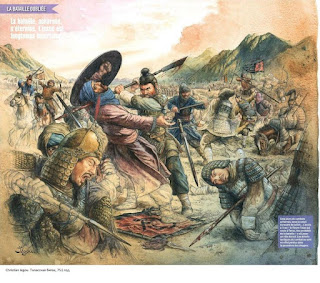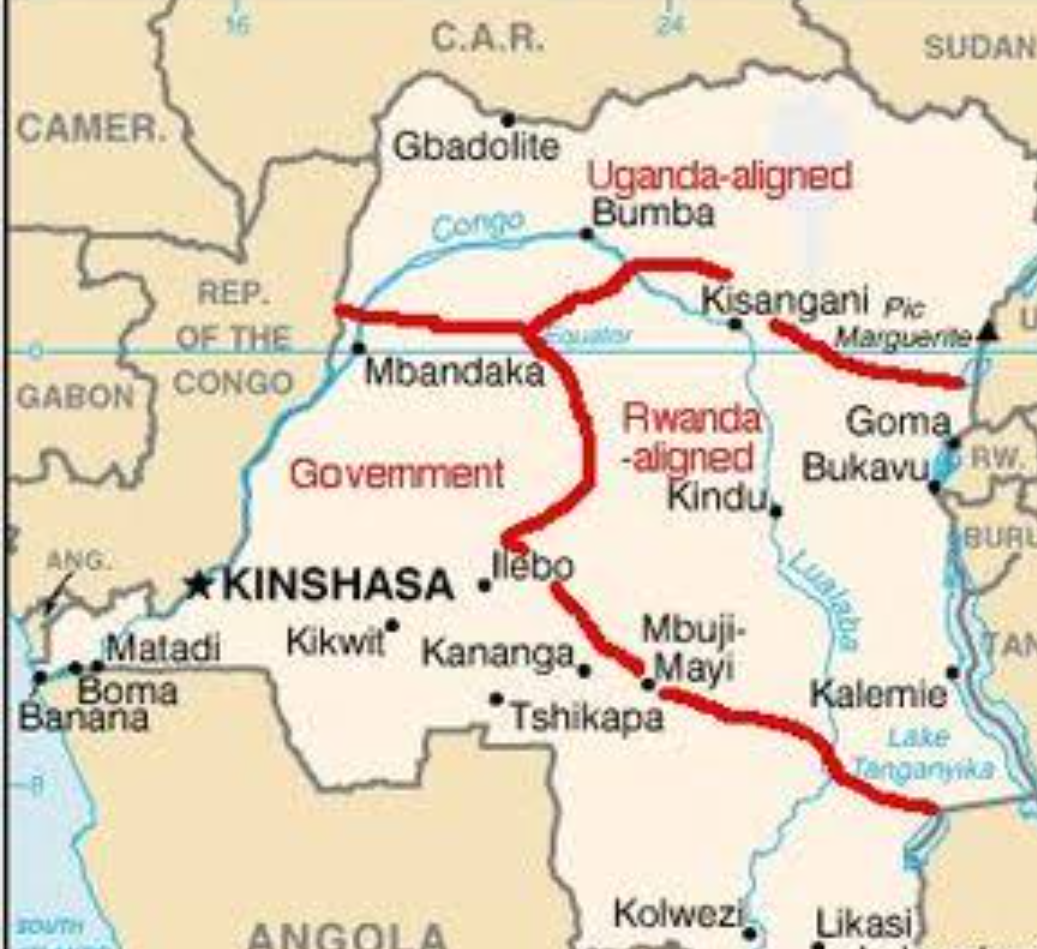The Battle of Talas: Clash of Empires and the Paper Trail of History
Introduction
The Battle of Talas, fought in 751 CE near the Talas River in Central
Asia, remains a significant turning point in history, marking the clash between
the Abbasid Caliphate and the Tang Dynasty. Though relatively lesser known than
other major battles, its impact reverberated across empires and shaped the
course of history. This article delves into the intriguing story of the Battle
of Talas, exploring its historical context, key players, battle tactics, and
the unexpected outcome that led to a unique cultural exchange—the dissemination
of the art of papermaking from China to the Islamic world.
Historical Context
To comprehend the Battle of Talas, we must delve into the historical
context of the Abbasid Caliphate and the Tang Dynasty. The Abbasid Caliphate,
centered in Baghdad, sought to expand its influence over the Silk Road trade
routes. Meanwhile, the Tang Dynasty, ruling over a prosperous and culturally
vibrant China, aimed to maintain its authority over Central Asia and its lucrative
trade networks.
Key Players and Motivations
This section examines the key players in the Battle of Talas and their
motivations. On one side, we have the Abbasid forces, led by Ziyad ibn Salih, a
seasoned general appointed by the Caliph. The Abbasids were driven by the
desire to expand their empire and establish dominance over Central Asia.
On the other side, we have the Tang Dynasty forces, commanded by Gao
Xianzhi, a distinguished military leader. The Tang Dynasty sought to safeguard
its hold on Central Asia and protect its economic interests. The alliance
between the Abbasid Caliphate and the Tibetan Empire added complexity to the
conflict, as the Tibetans sought to capitalize on the power struggle.
Battle Tactics and Strategies
This section delves into the battle tactics employed by both sides during
the Battle of Talas. It highlights the military strategies, troop formations,
and maneuvers that shaped the outcome. The Abbasids utilized their cavalry strength
and superior archery skills, while the Tang forces relied on their heavily
armored infantry and disciplined formation. The battle witnessed fierce
clashes, tactical maneuvers, and ingenious stratagems that showcased the
military prowess of both sides.
Unexpected Outcome
One of the most intriguing aspects of the Battle of Talas is the
unexpected outcome that led to a unique cultural exchange—the transfer of
papermaking technology from China to the Islamic world. Following the battle,
Chinese prisoners captured by the Abbasids possessed the secret knowledge of
papermaking, which became highly valued. This incident marked a crucial turning
point in the history of paper, as the skill spread throughout the Islamic
world, eventually reaching Europe and revolutionizing how knowledge was
recorded and disseminated.
Legacy and Historical Significance
The Battle of Talas had far-reaching implications for the Abbasid
Caliphate, the Tang Dynasty, and the subsequent history of Central Asia. It
weakened Tang's influence in the region and contributed to the decline of the
Silk Road trade routes. The exchange of papermaking technology became a
significant catalyst for intellectual development and cultural exchange,
shaping the Islamic Golden Age and leaving an indelible mark on world
civilization.
Conclusion
The Battle of Talas, while often
overshadowed by other historical conflicts, played a critical role in shaping the
destiny of empires and triggering the spread of papermaking. It is a
testament to the complex interactions between different civilizations, where
wars sometimes unintentionally birth new ideas and foster cultural exchange.
The legacy of the Battle of Talas extends beyond its
immediate impact, as it highlights the interconnectedness of societies and the
profound influence that military conflicts can have on the exchange of ideas
and technologies.
Centuries after the Battle of Talas, the art of papermaking
spread throughout the Islamic world, leading to the establishment of paper
mills and the proliferation of books, manuscripts, and knowledge. The
accessibility of paper revolutionized the ways in which information was
recorded, preserved, and disseminated. It played a pivotal role in the
flourishing of Islamic scholarship, scientific advancements, and cultural
achievements during the Islamic Golden Age. From the works of Avicenna and
Al-Kindi to the translations of Greek and Roman texts, the impact of paper on
intellectual pursuits cannot be overstated.
Moreover, the dissemination of papermaking technology from
the Islamic world to Europe played a crucial role in the European Renaissance.
The availability of paper made written materials more affordable and
accessible, contributing to the rapid spread of knowledge, literacy, and the
scientific revolution. The printing press, invented by Johannes Gutenberg in
the 15th century, further accelerated the dissemination of ideas and paved the
way for the modern era of information.
In terms of geopolitical consequences, the Battle of Talas
weakened the Tang Dynasty's hold on Central Asia, marking the decline of
Chinese influence in the region. It also had significant ramifications for the
Abbasid Caliphate, as it contributed to their expanding authority and control
over the Silk Road trade routes. The battle, though relatively localized, had
far-reaching implications that influenced the balance of power in the region
and the subsequent course of history.
In conclusion, the Battle of Talas is a unique
historical event, where a clash between empires resulted in unexpected
outcomes. The transfer of papermaking technology from China to the Islamic
world sparked a cultural exchange that profoundly impacted the realms of
knowledge, scholarship, and communication. The legacy of the battle extends
beyond military conquests and geopolitical shifts, leaving an enduring mark on
the intellectual and cultural development of societies. The Battle of Talas
reminds us that even in times of conflict, opportunities for innovation and
exchange can arise, shaping the course of civilization in unforeseen ways.



